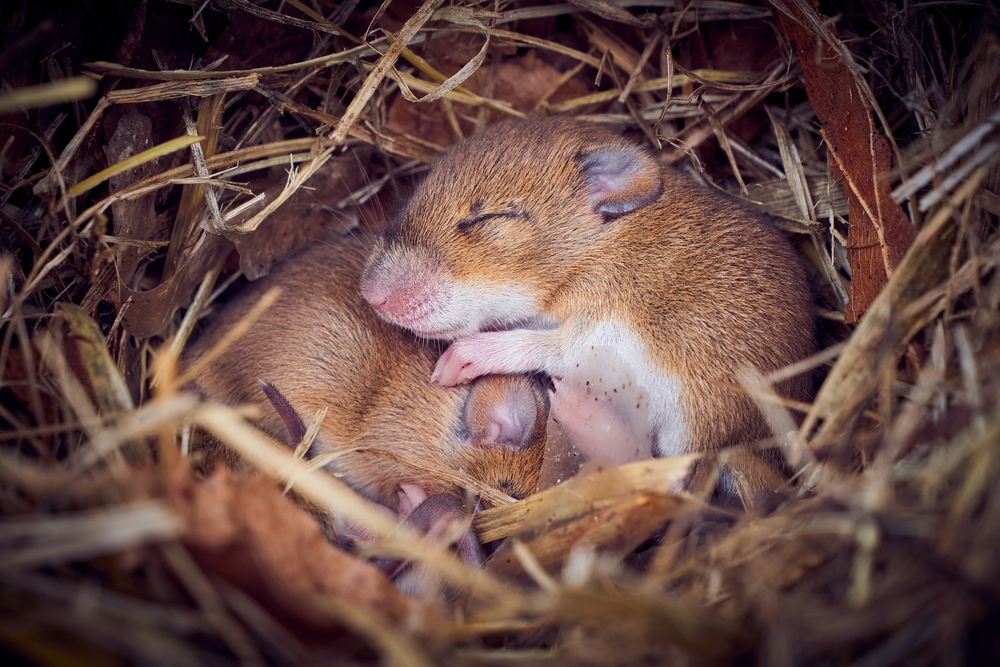With the number of people these days opting for a sleep divorce, it’s clear that sometimes, sharing a bed with a significant other is not the pathway to restful slumber. As much as we may love them, sleeping alongside a partner (or indeed, a furry friend) can sometimes do more harm than good. Now, a study has added new evidence to this discussion from an animal that, just like us, doesn’t always select the best sleeping arrangements.
Interactions with other members of the same species can have a profound effect on all sorts of aspects of animal physiology and behavior, but scientists know surprisingly little about the implications of socializing on sleep. A new study led by Ada Eban-Rothschild, assistant professor at the University of Michigan, found that mice like to cuddle when they sleep, even though this sometimes leads to a less restful snooze.
The researchers called this drive towards physical contact at bedtime “somatolonging”, and it’s been observed in humans too. “The lack of this kind of contact was evident during the COVID-19 pandemic, during which people experienced somatolonging,” Eban-Rothschild said in a statement.
Through behavioral experiments that the team devised, they were able to show that mice will sacrifice their preferred sleeping location and will put up with a lower-than-optimal sleeping temperature, if it means they get to cuddle with a buddy. This demonstrates that they’re genuinely motivated by physical contact with another, sometimes at their own expense.
As the study authors put it, “While home was warm and cozy, somatolonging was just too strong.”

Not only is it scientifically intriguing, it’s just plain adorbs.
Image credit: Adrian Eugen Ciobaniuc/Shutterstock.com
Using wireless monitoring devices and video recordings, the researchers were able to keep tabs on the mice’s brain activity and behavior over a 24-hour period. They found that the timings of sleep/wake cycles were synchronized in co-sleeping individuals, as well as sleep intensity.
The timing of rapid eye movement (REM) sleep – the period of sleep when we dream – was also found to sync up among male sibling mice sleeping together, but not among females or unfamiliar mice. The team suggested that the degree of synchronization is affected by other internal factors, such as how safe the individual feels.
But along with all this synchronicity, there is also a cost to co-sleeping. Cuddling mice displayed a significantly more disrupted non-REM sleep phase. Video evidence demonstrated that this equally seemed to be true in the mice that were not wearing the wireless recording devices, likely ruling out the discomfort of these devices as a cause for the disrupted sleep. “These findings suggest that while mice actively seek physical contact prior to sleep and continue huddling throughout, such close physical proximity to conspecifics leads to a fragmentation of [non-REM sleep],” the authors concluded.
The study establishes that mice, like many humans, will forgo undisturbed sleep if it means they get to cuddle with a partner. As to why this is the case, the scientists are not much closer to an answer. The authors highlight the need for further study, pointing out that their results go against one of the main hypotheses in this field to date: that huddling together is mostly a means for mammals to keep warm and survive harsh conditions.
If the choice was between sleeping alone in a warm room, or knocking the thermostat down a few degrees but getting to share your bed, which would it be? For the mice in this study, the answer is clear; for those of you lying awake after being disturbed by a snoring partner for the fifth time this week, it could be a different story.
The study is published in Current Biology.
[H/T: Newsweek]
Source Link: Did Scientists Find Another Reason To Avoid Sharing A Bed With Our Partners?